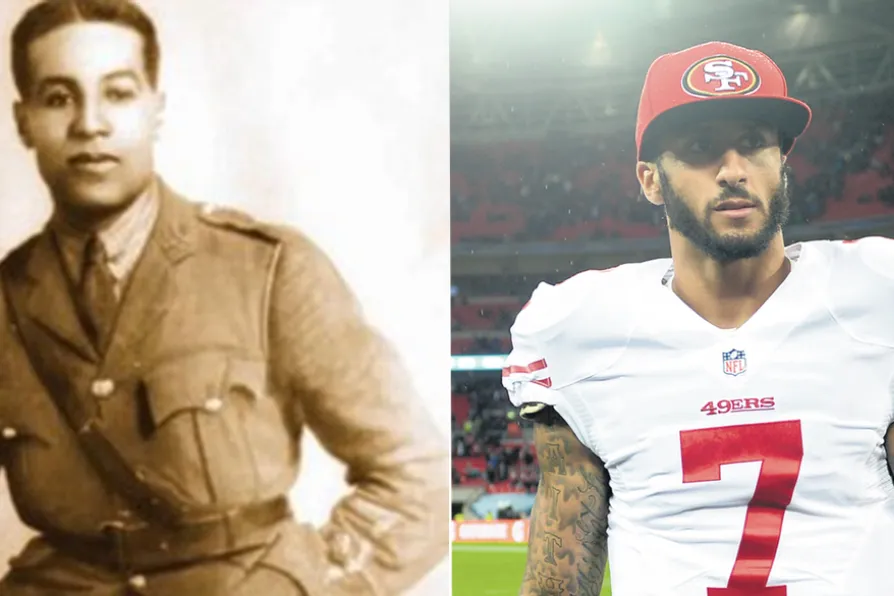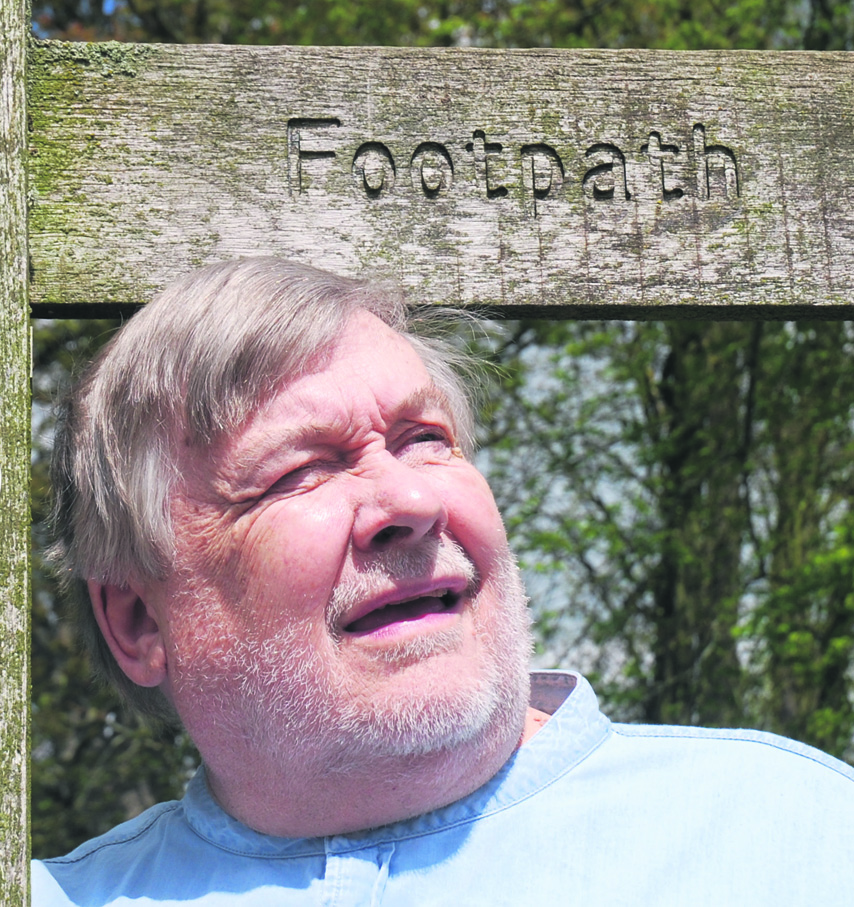Durham Miners’ Association general secretary ALAN MARDGHUM speaks to Ben Chacko ahead of Gala Day 2025

 Walter Tull (left) and Colin Kaepernick (right)
Walter Tull (left) and Colin Kaepernick (right)
KEEP politics out of sport — that is the all too common cry from those who are happy with the very right-wing political status quo of sport as it is.
It’s the cry of racist President Donald Trump when brave black footballers kneel for the US national anthem in protest against state violence against blacks.
It was the cry from British Cricket bureaucrats in the 1970s when Jeremy Corbyn and thousands more of us were protesting about tours by all-white South African teams upholding the obscenity of apartheid.
It was the cry of the blimps in blazers of the Football Association (FA) who would not let women’s teams play on FA pitches right up until 1971. They said “the game of football is quite unsuitable for females.” No misogynistic politics there then.
I could go on and on, but I think you have probably got the message.
Some of my greatest sporting heroes in fact, are those who were not afraid to bring politics into sport. Take Jesse Owens, the black athlete who bravely went to the nazi 1936 Olympic Games in Berlin. Hitler had organised the games to demonstrate the superiority of the white Aryan races. Much to the nazi leader’s horror Owens took four gold medals home to the US.
In the 1968 Olympics black US athletes Tommie Smith and John Carlos won gold and bronze medals in the 200 metres. Both gave the Black Power raised fist salute while the US anthem was being played after the medal presentation. It was another major contribution to black history and black consciousness.
Now let me talk about two black footballers whom I admire. More than a hundred years separate their time on the football field and the football each of them played are as different as chalk and Philadelphia Cream Cheese.
The first is quarterback Colin Kaepernick who plays American Football — a game more like rugby but played in padded uniforms, helmets and war paint.
Kaepernick drew international attention to the institutional brutality African-Americans face from the police when he took to kneeling during the US national anthem before NFL games in August 2016.
“I am not going to stand up to show pride in a flag for a country that oppresses black people and people of colour,” he proudly told the media.
“To me, this is bigger than football and it would be selfish on my part to look the other way. There are bodies in the street and people getting paid leave and getting away with murder.”
US President Donald Trump hates any civil rights activists including Kaepernick which in my book is enough to make this footballer a real hero to be admired.
I have written before about Walter Tull, who was one of Britain’s first black professional footballers. Tull died one hundred years ago.
Walter Tull was the first ever black officer in the British army and the first to lead white troops into battle. He achieved that against all odds.
Even just a few weeks before Tull made the final sacrifice, the racist Army Council was still insisting black people should not be enlisted into British army regiments.
“We now refuse to post coloured men to white units,” said a memo from a high-ranking officer to the War Office “These niggers must therefore go to native units if accepted.”
Walter Tull’s life started in 1888 in Folkestone. His father, the son of a slave, had arrived from Barbados in 1876 and married a woman from Kent. Walter was only seven when his mother died. His father remarried but died himself just two years later.
His widow was unable to cope with six children and Walter and his brother Edward found themselves in a London orphanage. After a brief time as an apprentice printer Walter turned to his first love, football.
East London amateur club Clapton spotted his talent and young Walter played in their first team in the 1908-09 season. With Walter in the forward line, Clapton won several important London Cups.
Scouts from Tottenham Hotspur soon spotted and signed the young black player. They paid Tull a £10 signing fee and £4 per week, but he never got the appearances he thought he deserved. He soon moved to Northampton Town, the Cobblers.
Just like today, racist abuse from the terraces was alive and kicking. A contemporary newspaper reported: “A section of the spectators made a cowardly attack upon him in language lower than Billingsgate …” Early in 1914 Glasgow Rangers made a bid for Tull, but a much bigger game was about to kick off. When war was declared, Tull was quick to volunteer. He joined the Football Battalion where he quickly made sergeant.
In July 1916, at the battle of the Somme, Tull developed trench fever and was sent home to England to recover. When fit again, he was sent to an officer training school in Scotland despite military regulations that effectively banned black officers. Tull received his commission in 1917.
Lieutenant Walter Tull, the first black combat officer ever in the British Army, was first sent to the Italian front where he was mentioned in dispatches for his “gallantry and coolness” under fire.
Back in France in March 1918 Tull soon organised an attack on the German trenches. Against heavy German machine-gun fire he led his troops over the top. A bullet in the head blew the final whistle for Lieutenant Walter Tull. He was just 29,
In Black History Month let’s remember with pride, these two brave sportsmen — Colin Kaepernick, still making important history today, and Walter Tull, who made just as relevant history a century ago.



















